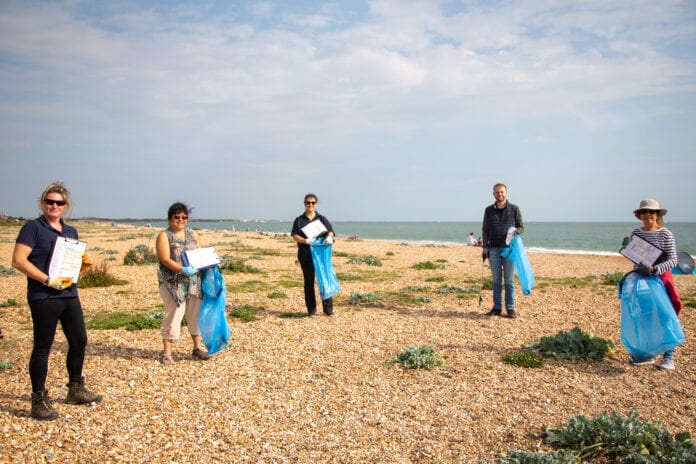Results of Marine Conservation Society’s Great British Beach Clean show concerning volume of PPE litter
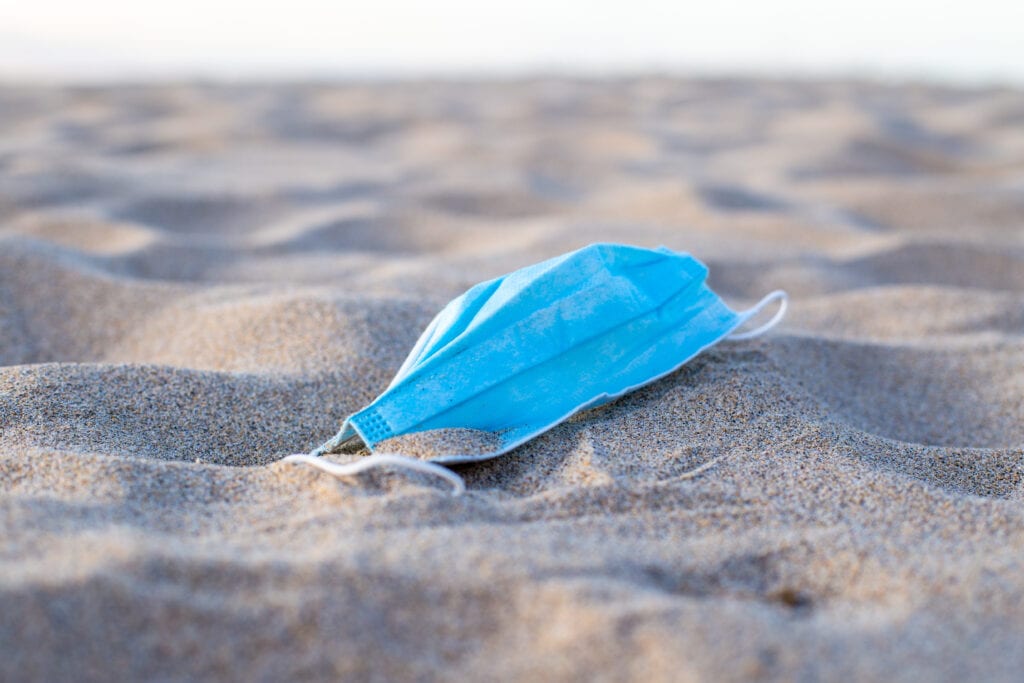
Charity’s annual Great British Beach Clean results are word of warning on PPE pollution
This year, the Marine Conservation Society’s annual Great British Beach Clean, supported by players of People’s Postcode Lottery, took place against the backdrop of the Coronavirus pandemic. As the charity introduced measures to ensure beaches could still be cleaned and surveyed in accordance with guidelines, it also asked volunteers to record face masks and plastic gloves for the first time.
The charity’s citizen science project gives an insight into the most common forms of litter on the Welsh coast. This year’s results are supported by inland data collected by volunteers embarking on the charity’s Source to Sea Litter Quest.
The results from this year’s Great British Beach Clean show a concerning, but perhaps predictable, presence of PPE litter. Face masks and gloves were found on almost 30% of beaches cleaned by Marine Conservation Society volunteers over the week-long event. The inland Source to Sea Litter Quest data shows a similarly worrying presence of masks and gloves, with more than two thirds (69%) of litter picks finding PPE items.
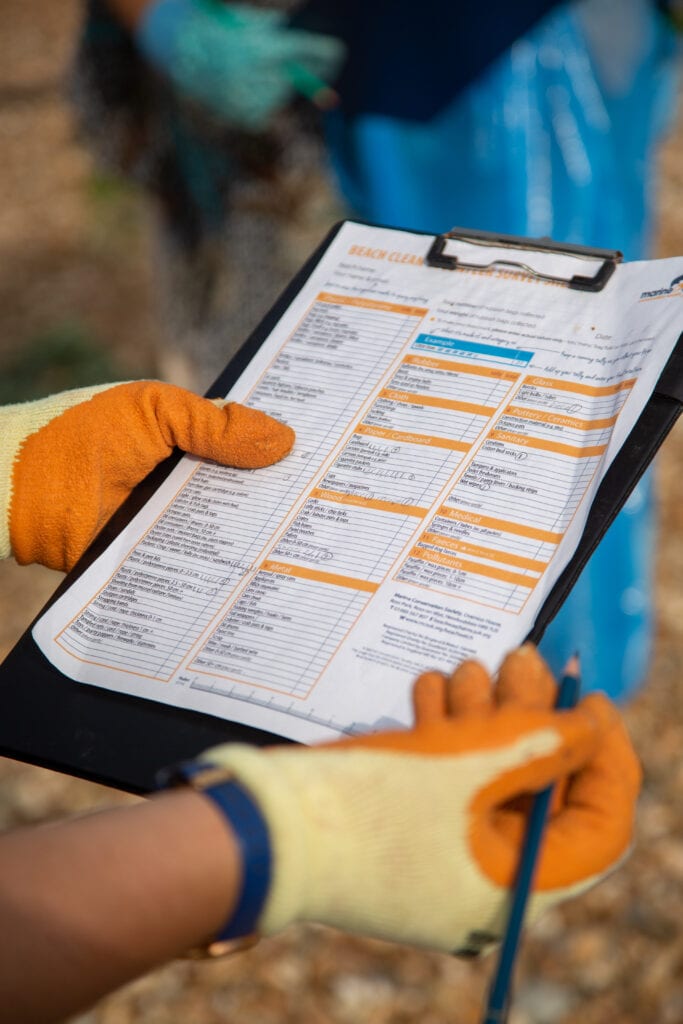
Lizzie Prior, Great British Beach Clean Coordinator at the Marine Conservation Society said: “The amount of PPE our volunteers found on beaches and inland this year is certainly of concern. Considering masks were only made mandatory a matter of months ago, the spike in their presence on our shores is worrying. Whilst we continue to battle with the ongoing presence of other single-use litter, PPE pollution cannot be part of our new normal.”
Like many other single-use items, disposable face masks and gloves pose a threat to wildlife on land and at sea. Marine animals could mistake face masks and gloves for prey, filling their stomachs with materials which will not break down and could prove to be fatal. Animals also risk being tangled in the straps of face masks, with seabirds’ feet pictured recently being wrapped in the elastic strings.
Across the week of the Great British Beach Clean, over 3,000 metres of Welsh beach was cleaned and surveyed during 32 events, with 143 volunteers getting involved, including Welsh First Minister, Mark Drakeford. An average of 237.5 litter items were found per 100 metres of Welsh coastline, with small plastic pieces remaining the most common form of litter, an average of 92.4 pieces being found per 100m of beach.
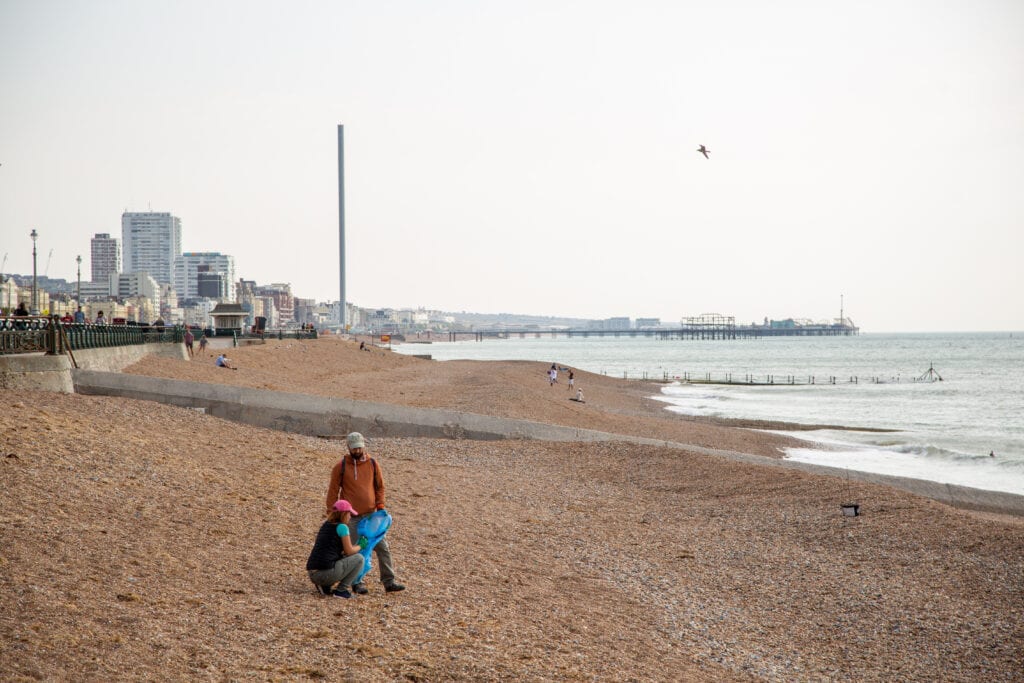
Gill Bell, Head of Conservation Wales at the Marine Conservation Society said: “This year’s results show the persistent problem of plastic on Welsh shores. Every year, small pieces of plastic remain the most commonly found item on our beaches having broken down from larger plastic items. By banning certain single-use plastics and introducing policies which prioritise reuse, we can turn the tide on plastic.
“We welcome the two recent consultations by the Welsh Government: Beyond Recycling and a ban on some single-use plastics. We hope the government takes notice of the public’s views and develops ambitious policy on deposit return systems and extended producer responsibility.”
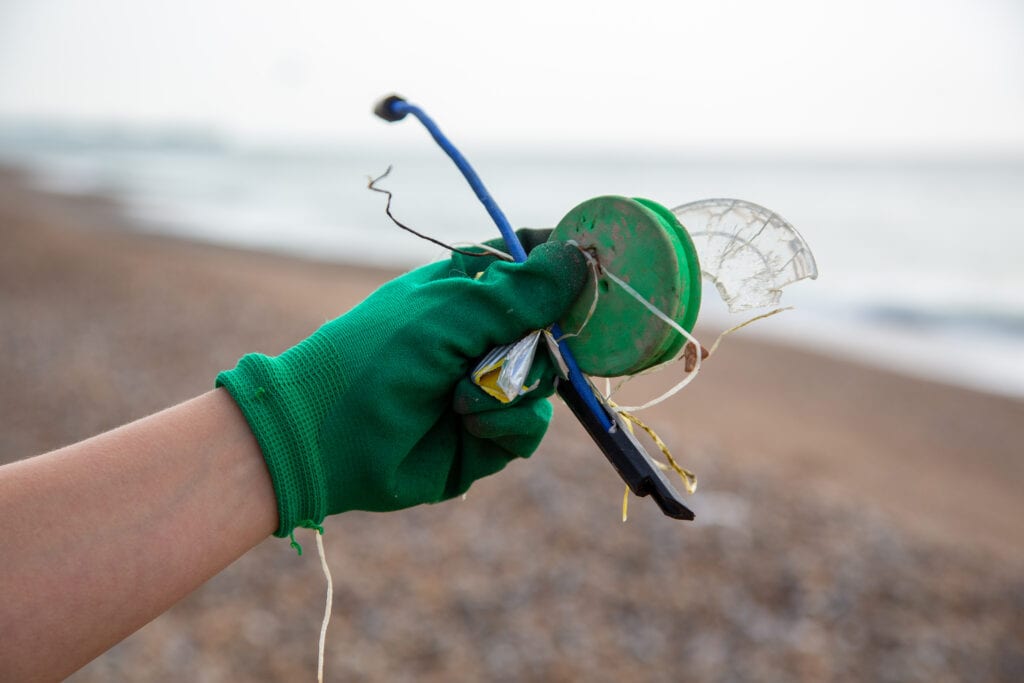
The top 5 most common litter items on Welsh beaches in 2020 (average per 100m of beach surveyed):
1. Plastic and polystyrene pieces (0-50cm) – 92.4
2. Plastic string – 21.9
3. Plastic and polystyrene caps and lids – 17.8
4. Plastic and polystyrene packets (crisps, sweets and sandwiches) – 14.3
5. Cigarette stubs – 9.5
For more information about the Marine Conservation Society’s Great British Beach Clean and year round Beachwatch programme, please visit the charity’s website.
Help keep news FREE for our readers
Supporting your local community newspaper/online news outlet is crucial now more than ever. If you believe in independent journalism, then consider making a valuable contribution by making a one-time or monthly donation. We operate in rural areas where providing unbiased news can be challenging. Read More About Supporting The West Wales Chronicle

















